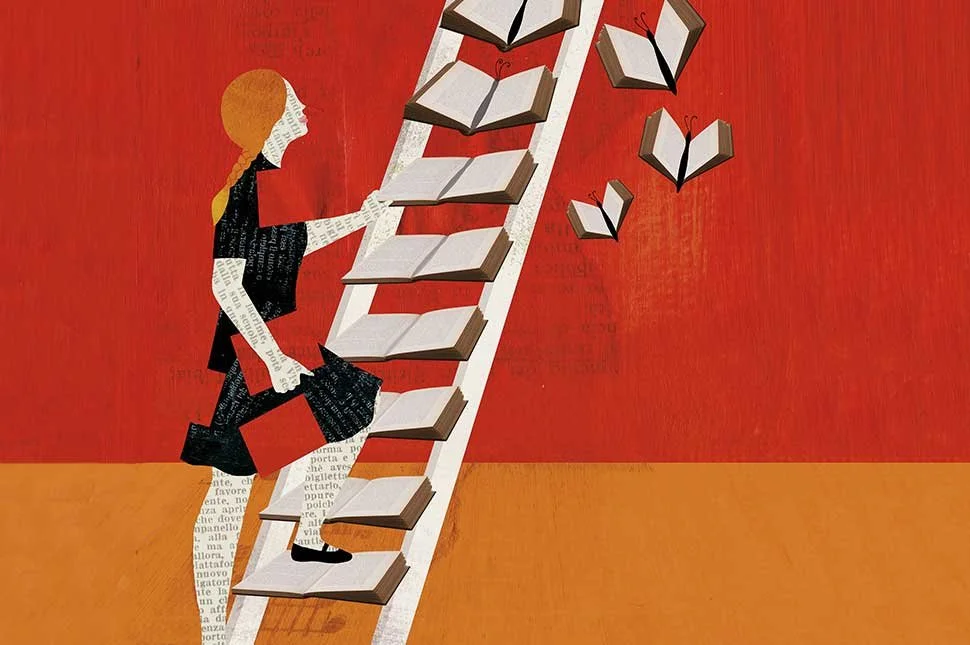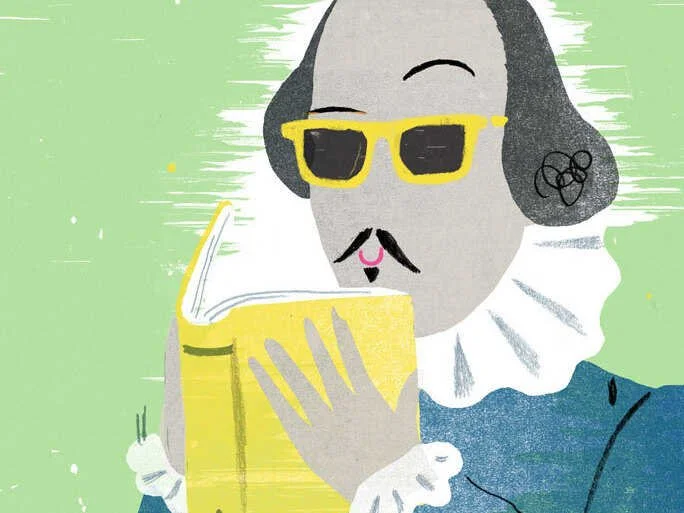Ralph Pezzullo is the New York Times and international bestselling author of THE GREAT CHINESE ART HEIST, and award-winning playwright and screenwriter. He is also the host of the popular podcast “Heroes Behind Headlines,” which ranked #8 on Apple Podcasts. The son of a U.S. diplomat, he grew up all over the world. After receiving a master’s degree in International Affairs, he worked on Capitol Hill and later as a correspondent for Associated Press, covering assignments in Latin America and creating relationships with other diplomats, political leaders, CIA agents, and military officers worldwide.
Read MorePresident Donald Trump's recent implementation of sweeping tariffs has sent ripples through various sectors of the U.S. economy, with the book publishing industry poised to experience significant impacts. The administration's decision to impose a 25% tariff on goods from Mexico and Canada, along with a 10% increase on imports from China, directly affects the publishing sector, which relies heavily on international supply chains for printing and materials.
Read MoreElisabeth Ovesen is the New York Times bestselling author behind CONFESSIONS OF A VIDEO VIXEN, the Vixen Series, and Karrine Steffans pen name. She has published with HarperCollins Publishers and Hachette Book Group. She was featured in countless magazines and newspapers and on television and radio shows worldwide. Oprah Winfrey has interviewed Ovesen. Her Books have forced a conversation about the sexual deviances of the entertainment industry fifteen years before the Me Too Movement. Ovesen’s work has consistently been included in Gender, Women’s, and Hip-Hop studies curriculums at higher learning institutions nationwide.
Read MoreIn the world of book publishing, authors and publishers often collaborate to bring literary works to the masses. As part of this collaboration, the negotiation and handling of subsidiary rights play a crucial role. Subsidiary rights refer to the various additional ways a book's content can be utilized beyond its primary publication. These rights encompass a wide array of options, from serializations in periodicals to foreign translations and audio recordings. In this comprehensive guide, we'll delve into the intricacies of subsidiary rights and their significance in the publishing industry.
Read MoreAs the countdown to the New Year begins, writers around the world are contemplating their writing journeys, setting goals, and eagerly awaiting a fresh start. New Year's writing resolutions offer a golden opportunity to reflect on the past and envision the future. Whether you're a seasoned author or just beginning your literary adventure, embracing the blank page with thoughtful resolutions can pave the way for a year of creativity, growth, and accomplishment.
Read MoreAs the festive season wraps its magical arms around the world, there's a unique warmth that emanates from the heart of the bustling world of book publishing. In an industry fueled by creativity, passion, and the joy of storytelling, the holidays take on a special meaning for those who weave words into worlds.
Read MoreBook royalties are a common term in the publishing world, yet for many, they remain a source of mystery. What exactly are book royalties, and how do they work? In this comprehensive guide, we will unravel the intricacies of book royalties, exploring their meaning, typical rates, calculation methods, and the impact of advances.
Read MoreBook sales matter to publishers for various compelling reasons, from economic viability to supporting authors and fostering diversity in literature. The success of a book on the market directly impacts a publisher's ability to continue bringing the magic of books to readers around the world. So, the next time you pick up a book, remember that you're not just holding a story; you're holding the lifeblood of an entire industry.
Read MoreIn this presentation, we’ll dive into what happens after the big publication day. Your book is on the shelves, now what? We’ll talk about publicity & marketing, sales, and more. Plus, when is it time to start working on the next project (and talking about the next project with your agent and editor) and other ways to put your time and energy to best use once your book has officially launched.
Read MoreThroughout history, banning books has been a contentious issue that continues to ignite debates and discussions worldwide. Suppressing the written word seems counterintuitive in a society that values freedom of expression and exchanging ideas. Paradoxically, when books are banned, it often increases curiosity and demand for them. This article will explore the intricate relationship between book banning and its unintended consequence: the sale and popularity of banned books.
Read MoreChristina 'Chrostin' De Witte is a Belgian-Thai webcomic artist and author of several books published worldwide. She has a weekly column in De Standaard, a Belgian national newspaper, where she writes and draws about daily life. She debuted with THE ULTIMATE SURVIVAL GUIDE TO BEING A GIRL in 2018, now sold worldwide, everywhere from the U.S. to South Korea. Next up from De Witte: NOODLES, RICE, AND EVERYTHING SPICE: A THAI COMIC BOOK COOKBOOK, an approachable, fun comic book cookbook tour of Thai culture and cuisine with 50 recipes and stories from the country's main culinary regions.
Read MoreIn today's digital age, authors need more than a beautifully crafted manuscript to connect with their readers and establish their presence in the literary world. An author's website has become essential for building a strong online presence, reaching a broader audience, and promoting their work. But what exactly goes into a good author website? This article will explore the key elements that make an author's website great and effective.
Read MoreRejection is an integral part of a writer's journey. Whether you're a seasoned author or just starting your literary career, you'll inevitably encounter rejection at some point. While it can be disheartening, rejection is not the end; it's merely a stepping stone toward success. Explored here are strategies for writers to overcome rejection and emerge stronger and more resilient in their pursuit of literary excellence.
Read MoreEvery year, Frankfurt, Germany, transforms into the epicenter of the global publishing industry as it hosts the Frankfurt Book Fair. Amidst the bustling halls and discussions about literature, one of the most vital aspects of the fair is the complex and intriguing world of rights and licensing. Publishers, authors, and literary agents converge at this prestigious event to negotiate deals that could see books translated into different languages, adapted into various media, and introduced to new markets. This article delves into the fascinating realm of rights and licensing at the Frankfurt Book Fair.
Read MoreFiction is a vast realm that encompasses a wide array of genres and styles, each with its unique appeal and characteristics. Among these, literary fiction stands out as a distinct and often revered category. What sets literary fiction apart from other types of fiction, such as genre or commercial fiction, goes beyond plot and storytelling—it delves deep into the human condition, offering readers a unique and profound exploration of life's complexities.
Read MoreThe publishing world is ever-evolving, and literary tastes among readers are continually shifting. As we enter a new era, specific genres shine brighter than others. In this article, we delve into the hottest fiction genres in publishing, offering insights into what's captivating readers and why these genres are experiencing a surge in popularity.
Read MoreIn a significant development with far-reaching implications for the book publishing industry, the Federal Trade Commission (FTC) has filed an antitrust lawsuit against Amazon, one of the world's largest online retailers and a dominant player in the digital book market. This legal action comes as part of a broader debate about competition in the digital age and raises questions about what this lawsuit means for the future of book publishing. In this article, we'll explore the background of the FTC's lawsuit against Amazon and its potential impact on authors, publishers, and consumers.
Read MoreThe intersection of artificial intelligence and literature has sparked an ongoing debate concerning intellectual property rights and social considerations. At the heart of this debate lies the controversial "Books3" dataset, comprising over 191,000 books used without permission to train generative AI systems, with prominent entities like Meta (formerly Facebook) and Bloomberg among the users. This article delves into the origins, implications, and social concerns surrounding the Books3 dataset and its unauthorized usage.
Read MoreIn a dramatic turn of events, the Writers Guild of America (WGA) and major studios have reached a tentative deal, raising hopes of ending a crippling strike that brought Hollywood to its knees for months. This breakthrough agreement signals a possible return to normalcy for the entertainment industry, offering relief to writers, studios, and fans alike.
Read MoreIn an era of technological advancements, the publishing industry is no stranger to the transformative power of artificial intelligence (AI). Publishers increasingly turn to AI tools to streamline their in-house processes, enhance efficiency, and remain competitive in an ever-evolving landscape. From content creation to distribution and beyond, AI is becoming a valuable ally for publishers seeking to stay ahead of the curve.
Read More


















